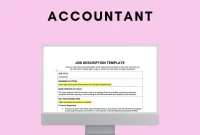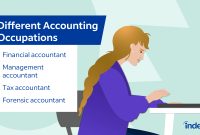Becoming a tax preparer can be a rewarding career choice, especially if you enjoy working with numbers and helping people manage their finances. This guide will walk you through the steps to becoming a tax preparer, from understanding the role to acquiring the necessary skills and certifications.
Understanding the Role of a Tax Preparer
Tax preparers are professionals who assist individuals and businesses in filing their tax returns. They ensure that tax forms are completed accurately and submitted on time. Tax preparers also help clients take advantage of deductions and credits, ultimately saving them money.
Duties and Responsibilities
The primary responsibility of a tax preparer is to prepare and file tax returns. This involves gathering financial information, calculating taxes owed or refunds due, and ensuring compliance with tax laws. Tax preparers must stay updated on changes in tax regulations to provide accurate advice to their clients.
Skills Needed
To be successful as a tax preparer, you’ll need strong analytical skills, attention to detail, and the ability to work under pressure during the busy tax season. Good communication skills are also essential, as you’ll be explaining complex tax concepts to clients in a way they can understand.
Steps to Becoming a Tax Preparer
1. Obtain a High School Diploma or GED
The first step towards becoming a tax preparer is to complete your high school education. A diploma or GED is the minimum requirement to enter the field.
2. Gain Relevant Experience
While not always required, experience in accounting, finance, or a related field can be beneficial. Working in bookkeeping or as an assistant to an accountant can provide valuable insights into the financial industry.
3. Take Tax Preparation Courses
Many community colleges and online platforms offer courses in tax preparation. These courses cover essential topics like tax laws, tax return preparation, and software training. Completing a tax preparation course can enhance your knowledge and credibility.
4. Obtain Necessary Certifications
In the United States, tax preparers must obtain a Preparer Tax Identification Number (PTIN) from the IRS. Additionally, some states require tax preparers to pass an exam or obtain a license. Research the specific requirements for your state to ensure compliance.
Enrolled Agent (EA) Certification
Becoming an Enrolled Agent is an excellent way to advance your career. EAs are authorized by the IRS to represent taxpayers in matters such as audits and collections. To become an EA, you’ll need to pass a three-part exam covering individual and business tax laws.
5. Gain Experience in the Field
After obtaining the necessary certifications, gaining hands-on experience is crucial. Consider working for a tax preparation company, accounting firm, or even starting your own tax preparation business. Practical experience will help you develop your skills and build a client base.
Starting Your Own Tax Preparation Business
Setting Up Shop
If you’re interested in starting your own tax preparation business, you’ll need to consider several factors. Decide whether you’ll work from home or rent an office space. Invest in reliable tax software and set up a dedicated workspace to ensure efficiency.
Marketing Your Services
To attract clients, you’ll need to market your services effectively. Consider creating a website and using social media to promote your business. Networking with other professionals and joining local business organizations can also help you connect with potential clients.
Providing Excellent Customer Service
Building a successful tax preparation business relies heavily on customer satisfaction. Provide accurate, timely service and communicate clearly with your clients. Satisfied clients are more likely to refer your services to others, helping you grow your business.
Continuous Learning and Development
Tax laws and regulations change frequently, so it’s essential to stay informed about the latest updates. Attend tax seminars, workshops, and webinars to keep your knowledge current. Joining professional organizations such as the National Association of Tax Professionals (NATP) or the American Institute of CPAs (AICPA) can provide valuable resources and networking opportunities.
Career Opportunities for Tax Preparers
Working for an Accounting Firm
Many tax preparers begin their careers working for accounting firms. These firms offer a structured environment where you can gain experience and learn from more experienced colleagues.
Becoming a Personal Tax Accountant
As a personal tax accountant, you’ll work directly with individuals to manage their taxes and provide financial advice. This role requires a deep understanding of personal finance and tax laws.
Exploring Other Tax-Related Careers
With experience, you may choose to explore other tax-related careers such as becoming a tax consultant or tax advisor. These roles often involve more complex tax planning and strategy development.
Conclusion
Becoming a tax preparer can lead to a fulfilling career with numerous opportunities for growth and advancement. By following the steps outlined in this guide, you’ll be well on your way to entering the field and helping clients navigate their tax obligations. Whether you choose to work for a firm or start your own business, the skills and knowledge you acquire as a tax preparer will be invaluable.
Take the first step today by researching tax preparation courses and exploring the requirements in your area. With dedication and effort, you can build a successful career as a tax preparer.



